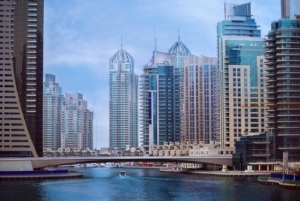Dubai’s real estate market is one of the most dynamic in the world, offering a mix of luxury, affordability, and high rental yields. Whether you’re a resident or an investor, deciding between renting and buying in Dubai can be a tough choice. Both options come with their own benefits and challenges, depending on your lifestyle, financial goals, and long-term plans.
In this guide, we’ll break down the pros and cons of renting vs. buying in Dubai to help you make the best decision.
Renting in Dubai: Pros and Cons
Pros of Renting:
- Flexibility – Renting allows you to move freely without being tied to one location.
- Lower Upfront Costs – Unlike buying, you don’t need a large down payment.
- No Maintenance Worries – The landlord is responsible for repairs and upkeep.
- Access to Prime Locations – Renting allows you to live in high-end areas without a huge investment.
- No Market Risk – You don’t have to worry about property depreciation or real estate market fluctuations.
Cons of Renting:
- No Equity Build-Up – Your money goes towards rent rather than building ownership.
- Annual Rent Increases – Depending on the area, landlords can increase rent as per RERA guidelines.
- Limited Personalization – You may not be able to modify or renovate the property.
- Landlord Dependence – Lease renewals and rental conditions depend on the landlord’s decisions.
Buying in Dubai: Pros and Cons
Pros of Buying:
- Long-Term Investment – Property values in Dubai tend to appreciate over time, offering strong capital gains.
- Builds Equity – Instead of paying rent, you invest in an asset that grows in value.
- Stable Monthly Costs – Fixed mortgage payments protect you from fluctuating rental prices.
- Residency Benefits – Buying property worth AED 750,000+ makes you eligible for a residency visa.
- Rental Income Potential – If you don’t live in the property, you can rent it out for passive income.
Cons of Buying:
- High Initial Costs – Down payments in Dubai range from 15-25% for expats.
- Maintenance Responsibility – Owners are responsible for property upkeep and maintenance.
- Market Risks – Property values can fluctuate based on economic conditions.
- Less Flexibility – Selling a property takes time, making relocation harder.
Financial Considerations: Renting vs. Buying
| Factor | Renting | Buying |
|---|---|---|
| Upfront Cost | 5-10% of annual rent | 15-25% down payment + fees |
| Monthly Expense | Rent payments | Mortgage payments + maintenance |
| Flexibility | High | Low |
| Long-Term Benefit | No equity | Builds equity over time |
| Ownership | No | Yes |
| Rental Returns | N/A | Can generate passive income |
Who Should Rent in Dubai?
- Expats who may relocate in a few years.
- Professionals who want flexibility and minimal financial commitment.
- Individuals who prefer not to worry about maintenance and property taxes.
Who Should Buy in Dubai?
- Long-term residents planning to stay for 5+ years.
- Investors looking for rental income and capital appreciation.
- Business owners and high-net-worth individuals seeking UAE residency.
Conclusion: Which Option is Best for You?
Ultimately, the decision between renting and buying in Dubai depends on your financial situation, lifestyle preferences, and long-term goals. If you value flexibility and lower upfront costs, renting is the best option. However, if you are looking to build equity and gain residency benefits, buying may be the smarter choice.
If you’re considering investing in Dubai’s real estate market, consult with a trusted property advisor to explore the best options available for you.


